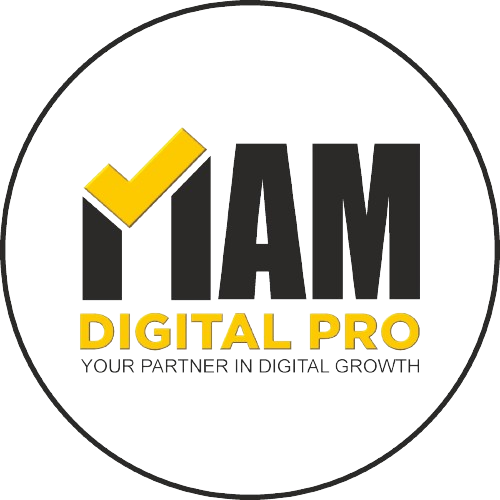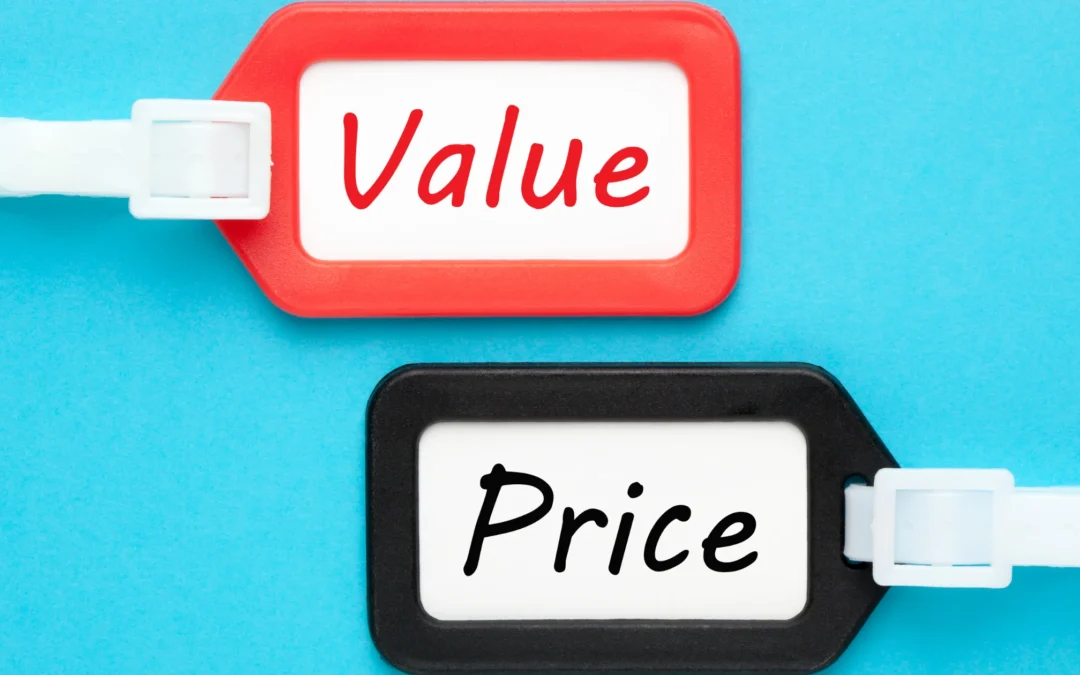Pricing services is a crucial aspect of any business. As a digital marketing agency, determining how to price your services can be challenging due to the constantly evolving nature of the industry. The demand for digital marketing services is at an all-time high, and businesses are looking for reliable and affordable solutions. This blog will explore the factors digital marketing agencies must consider when pricing their services.
Understand Your Costs as a Digital Marketing Agency
Before pricing your services, it is essential to understand the costs involved in providing them. Costs include employee salaries, office space, software subscriptions, and other overhead expenses. You must also factor in the time spent on each project, including meetings, research, and strategy development.
Understanding your costs is critical to ensure that you are pricing yourself appropriately and making a loss or pricing yourself too high, making it difficult for potential clients to justify the expense. It is essential to identify a balance between your costs and the prices you charge to make a profit.
Research the Market
Researching the market to determine how to price your services as a digital marketing agency is essential. Look at what other agencies are charging for similar services. Check out their websites, review their portfolios, and learn what their clients say about their services. This research will give you a good understanding of what your competitors are offering and what prices they are charging.
Remember that your competitors’ prices are only sometimes correct for your business. You need to factor in your costs and the value that you bring to the table. Consider your services’ unique selling points and the value you provide to clients.
Identify your Target Market
Who are you trying to reach with your digital marketing services? Are you targeting small businesses, startups, or large corporations? Your target market will play a significant role in determining your pricing structure. Small companies may have a smaller budget and require more affordable pricing options. On the other hand, large corporations may have a larger budget and be willing to pay more for premium services.
Consider Your Competition
What are other digital marketing agencies charging for similar services? Research your competition to get a sense of what the market rates are for digital marketing services in your area. This will help you determine a competitive price point while still allowing you to make a profit.
Define your Services
What specific digital marketing services do you offer? Do you specialize in social media marketing, SEO, PPC advertising, or email marketing? Your pricing structure will depend on the services you offer. For example, PPC advertising is more expensive than social media marketing, so you may need to charge more for PPC services to ensure that you’re making a profit.
Determine your Pricing Model
There are several pricing models that digital marketing agencies can use, including hourly rates, project-based pricing, and retainer pricing. Each pricing model has advantages and disadvantages; your chosen one will depend on your business needs and goals.
Hourly rates: With hourly rates, you charge clients for the time spent on their projects. This pricing model is used for smaller projects or clients needing occasional assistance. Hourly rates can be more difficult to predict revenue since the work can vary in time spent.
Project-based pricing: With project-based pricing, you charge a flat fee for a specific project. This pricing model is used for more extensive, one-time projects like website redesigns or content marketing campaigns. Predicting revenue with this pricing model can be more accessible but less profitable than retainer pricing.
Retainer pricing: With retainer pricing, you charge clients a monthly fee for ongoing services. This pricing model is used for clients who need ongoing digital marketing services, such as social media management or SEO optimization. Retainer pricing can be more profitable since you have a guaranteed monthly income, but it can require a longer commitment.
Remember Upselling
Once you have a client, remember to upsell them on additional services. For example, if you’re providing social media management for a client, you could also offer to run a social media advertising campaign for an additional fee. Upselling can help you increase your revenue and provide additional value to your clients.
Be Transparent About Your Pricing
Finally, being transparent about your pricing with your clients is essential. This means clearly outlining your pricing structure and the services included in each package. It also means being upfront about any additional fees or charges incurred during a project. Being transparent about pricing can build trust with your clients and avoid surprises.
In conclusion, pricing your services as a digital marketing agency requires careful consideration of your costs, value proposition, competitors, pricing model, bundling strategy, value-based pricing, and transparency. By developing a solid pricing strategy, you can ensure your agency is profitable while providing value to your clients.
Boost Sales with MAM Digital Pro’s Custom Digital Marketing
Stop settling for cookie-cutter digital marketing. MAM Digital Pro’s customized strategies bring meaningful ROI to brands without premium agency prices. Our certified experts know exactly how to make your SEO, PPC, web design, and social media drive accurate business results. See how the hands-on approach consistently delivers for clients of all sizes. Unlock your competitive edge with MAM Digital Pro’s high-impact, tailored digital marketing solutions. Request a quote today!
FAQs
1. How do digital marketing agencies typically charge for services?
Digital marketing agencies usually charge in one of three ways:
- Retainers – A monthly fixed fee that covers a set scope of ongoing services like social media management, SEO, etc. Retainers range from $1,000/mo to $10,000+/mo based on the services included.
- Project Rates – An hourly rate between $100-$500/hour, depending on the type of service. Project work like a website redesign or marketing campaign is charged based on the estimated hours.
- Packages – Bundled services offered at a fixed monthly or annual price. For example, a $5,000/mo package might include content creation, paid ads management, and reporting. Packages allow predictability in cost.
2. What factors influence the cost of digital marketing services?
Major factors that impact pricing include:
- Scope & Scale – The size, complexity, and number of services needed. Managing 100 social media accounts costs more than 10.
- Location – Agencies in large metro areas like NYC or San Francisco charge more than smaller cities.
- Experience – The digital marketing team’s skill, expertise, and track record command higher prices.
- Overhead – Costs like software, tools, office space, etc., are covered in pricing. A remote agency has a lower overhead.
- Profit Margins – Most agencies target a 20-30% profit margin on services—desired profit levels impact rates.
3. How much does SEM/PPC management typically cost each month?
The monthly SEM/PPC management cost depends heavily on the advertising spend and project scope. Most agencies charge an ongoing management fee of 15-25% of the ad spend. For example, PPC management for a $10,000/mo ad budget would range from $1,500 – $2,500/mo. Agencies often have minimum fees of around $1,000/mo, even for lower-spend accounts.
4. What is included in SEO pricing, and what are the typical costs?
SEO projects are usually priced based on an upfront strategy, and audit costs between $1,500-$5,000. The ongoing monthly fee for executing the strategy ranges from $1,000 for smaller sites to $5,000+ for enterprise sites.
SEO pricing usually includes keyword research, SEO audits, technical optimization, content optimization, outreach/link building, and reporting. Additional costs may apply for content creation.
5. What social media marketing services are offered, and how are they charged for?
Standard social media services and typical pricing:
- Social Media Management – $500-$2,000/mo for handling posts, engagement, and customer service for 1-4 platforms.
- Social Media Advertising – $500 per platform, per month minimum for ad management, based on the ad budget.
- Content Creation – $300-$500 per month for creating images and posts for social platforms.
- Strategy – One-time $1000-$5000 for an upfront social media strategy and calendar creation.
- Reporting/Analytics – Starting at $200/mo, more for in-depth reporting.
6. How do web design and development agencies price their services?
Most web design firms price services in two ways:
- Project Rate – The project is quoted based on estimated hours at an hourly rate of $50-$150/hr, depending on skill level. Websites can range from $3,000-$35,000+.
- Packaged Price List – Packages like “Basic Website” $2,000 and “ECommerce Site” $10,000 based on features included with fixed pricing.
- Add-ons like custom features, content population, SEO optimization, and hosting/maintenance are charged separately on top of the base project fees.
7. What are the typical pricing models for running Google Ads?
Google Ads management is usually priced based on a percentage of spend, with minimums applied. Typical pricing models:
- 10-20% of ad spend. For a $10,000/mo budget, fees range from $1,000 to $2,000.
- Minimum monthly fees. Ad spend under $2,500/mo might have a $500/mo minimum.
- One-time setup fees. For initial campaign setup and optimization, $250-$1,000 may be charged.
- Hourly consulting. Some agencies charge $150+/hr for ad hoc changes, reporting, or consulting.
- Performance pricing. Some agencies charge 15-20% of tracked sales vs. ad spend.
8. How should small businesses with a limited budget approach hiring a digital marketing agency?
For small businesses, consider seeking month-to-month retainers or project rates vs. large upfront contracts. This provides more flexibility. Communicate your budget constraints and have the agency tailor a scope that matches your budget range. Ask if they offer discounted packages for smaller accounts. Consider seeking freelancers or boutique agencies that cater to small businesses vs large agencies with higher overhead. Focus your spend on 1-2 services with the best ROI, like Google/Facebook Ads, vs. trying to do everything.
10. What questions should I ask when evaluating digital marketing pricing?
Key questions to ask:
- What is included and excluded from your pricing?
- Do you offer any budget-friendly packages for smaller businesses?
- What are your upfront or one-time costs vs. ongoing monthly fees?
- How can I measure ROI and results from your services?
- Do you offer any performance-based pricing models?
- Can you provide case studies or examples of effects you’ve achieved for other clients?
- Do you have month-to-month or annual contract terms?
- What are your payment terms and cancellation policies?

